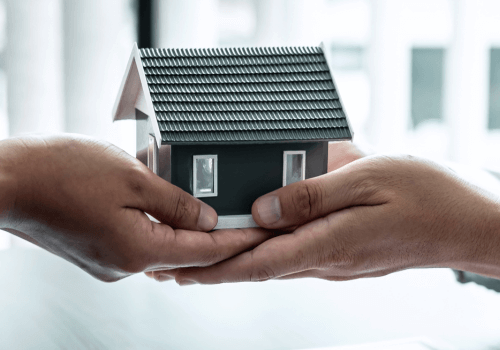Everything You Own

Everything You Own
A realtor friend jokingly congratulated me on purchasing my home in 2009 by saying, “Welcome to the class of ‘home-moaners’!”. Get it? Homeowners constantly moan about their property’s maintenance, upkeep, and to-dos.
If you’ve owned a home before, I’m sure you can relate. It always seems like there’s SOMETHING that needs attention! In the last 14 years, there was a (small) house fire, the remodel resulting from the house fire, the addition of three kids, a swing set, a tree house, yard projects (plural!), and water in the crawl space.
Somewhere along the way, I realized that everything in our lives requires maintenance, upkeep, storage, and insurance. The list could go on. It applies to the physical stuff as well as to relationships. That maintenance and upkeep take time, our scarcest resource.
If you’ve been around me for any length of time, there’s a chance you’ve heard my distilled aphorism:
“Everything you own owns you!”
For me, the saying invokes the biblical idea of stewardship. There’s also a secular trend toward “good governance” which also uses stewardship language. In either case, there is universal wisdom in seeing ourselves as stewards or caretakers.
By adopting this mindset, and more importantly, by living it out, stewardship can inspire contentment, gratitude, and result in healthier communities.
From my worldview, God owns the house, the business, and my relationships (or, as the Bible puts it, the cattle on a thousand hills!). And I’m simply the manager or steward.
When the market “tanks,” as a steward, I can respond with, “Huh, that’s interesting!” When the market “soars,” I can answer, “Huh, that’s interesting!”
Let’s go back to “my” home. My is in quotes. Intentionally.
Melinda and I take pride in ownership and know that in the most real of senses, we are but caretakers for the subsequent owners. (As an aside, capitalism is excellent in that there are rewards for maintaining something for others to use in the future! But I digress.)
We have planted trees that we hope we’ll see come to maturity. There are constant projects to maintain the property well. There’s the enjoyment and use of the asset with our family and friends.
Is the property “mine”? Does the property “belong” to future inhabitants? If you look at the property tax bill, you might conclude that the county owns it!
What does any of this have to do with financial planning? More than one might think at first glance.
Why do we accumulate “stuff”? Why do we accumulate wealth? Where is the wisdom in balancing current consumption versus future needs? Is it “just” to consume all that we save? Do we owe accumulated capital to future generations?
From a global perspective, those reading this article are wealthy beyond imagination. Living in the United States of America in the 21st century means you are almost certainly in the top half of global wealth. You are probably in the top 13% of the global wealth pyramid, which requires $100,000 of net worth per Credit Suisse. And neither of those considers our current wealth from a historical perspective. We are “rich”! At least materially.
Back to my biblical lens, much is expected of those who have much.
How will you proactively use your resources to make the world a better place? That may seem daunting and overwhelming. Your sphere of influence may be large or feel small.
How do you dream about changing the course of humanity in some small way? Viewing “your” stuff as a steward instead of an owner may reorient your thinking from the short-term to a long-term, or even eternal, perspective.
Wayne and I would love to dream with you about the implications of these ideas for you, your loved ones, and the important causes to you!
Sincerely,
CRAIG R. SMITH, CFP®, CFA®, ChFC®, CLU®
The opinions voiced in this material are for general information only and are not intended to provide specific advice or recommendations for any individual. To determine which investment(s) may be appropriate for you, consult your financial advisor prior to investing.